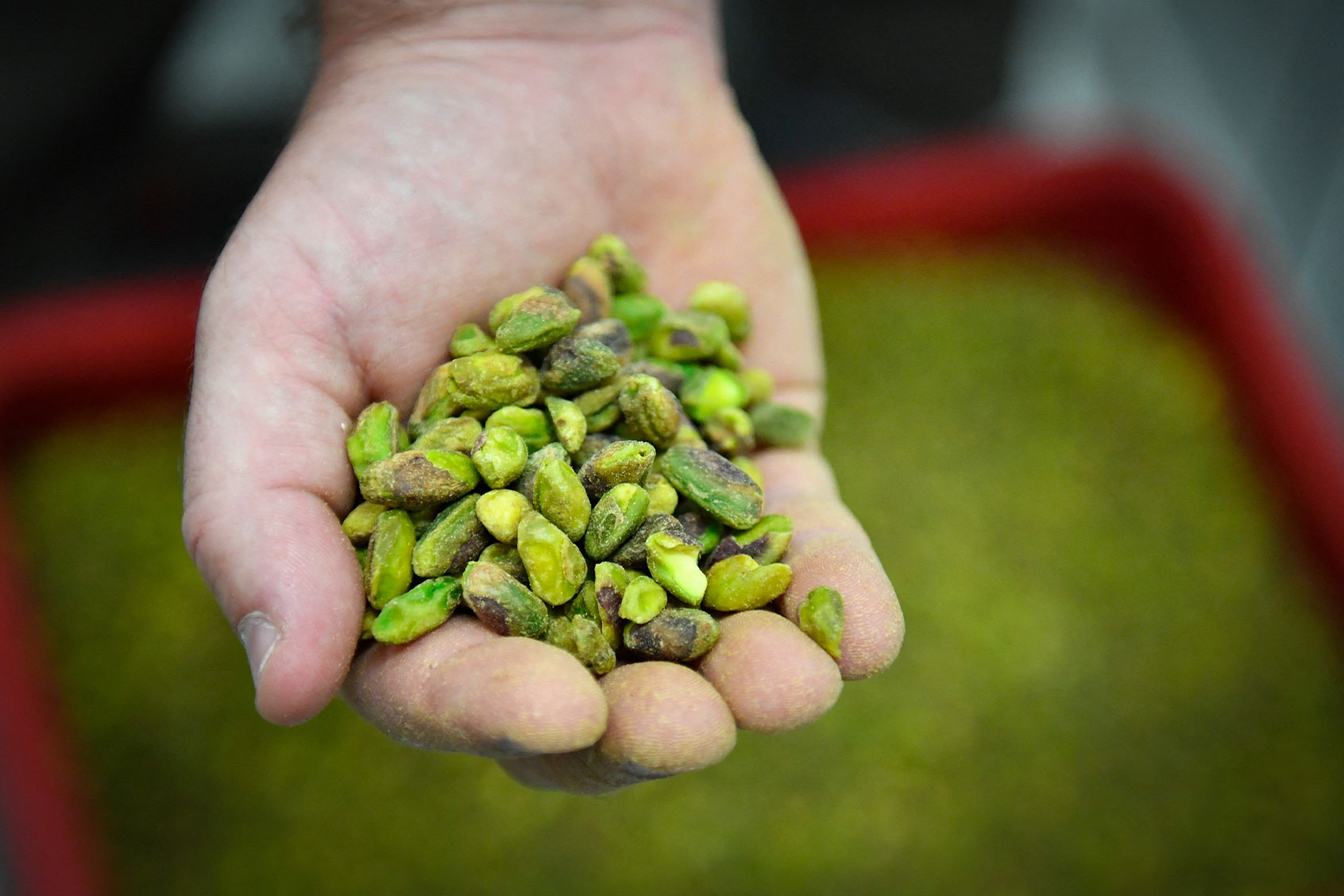California farmers are allocating more land to grow pistachios, which are proving to be a lucrative crop that can withstand the state’s drought conditions, the Associated Press reported Sunday.
Approximately 99% of U.S. pistachios are produced in California, per the Agricultural Marketing Resource Center. Last year, the nuts generated nearly $3 billion in the state. And in the past decade, the United States has become the world’s top exporter of the crop, besting both Iran and Turkey.
“There has been an explosion over the last 10 or 15 years of plantings and those trees are coming online,” Zachary Fraser, president and chief executive of American Pistachio Growers, told the AP. “You are starting to see the fruit of people’s vision from 40 years ago.”
Pistachios are currently California’s “sixth-biggest agricultural commodity in value” compared to other longtime crops grown in the state, like strawberries and tomatoes, per agriculture statistics. Most of the pistachios will be sent to China, where the crop is dubbed the “happy nut” and commonly eaten during Lunar New Year. But the nuts have also grown to be a popular snack throughout the States. Pistachios are sold with or without their shells and are available in a range of savory or sweet flavors.
As explained by the AP, pistachio orchards “can be sustained with minimal water during drought” and their trees “rely on wind instead of bees for pollination and can produce nuts for decades longer.” Because of the state’s Sustainable Groundwater Management Act (SGMA) — which limits the amount of groundwater farmers can use — pistachios have been hailed as the perfect crop to cultivate while satisfying sustainability initiatives.


